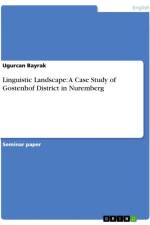von Ugurcan Bayrak
16,95 €
Essay in the subject History - Africa, University of Bayreuth, language: English, abstract: This paper delves into the complexities of Yoruba nationalism and ethnic politics, exploring how Yoruba identity has shaped Nigeria's past and present political landscape. Understanding the dynamics of Yoruba nationalism is crucial for comprehending the broader socio-political dynamics within Nigeria.Nigeria, with its vast population, abundant natural resources, and diverse ethnic landscape, faces significant challenges in navigating its complex socio-political terrain. The country's ambition to assert itself as a dominant political force is particularly influenced by its three largest ethnic groups: the predominantly Muslim Hausa-Fulani in the north, the predominantly Christian Igbo in the southeast, and the partially Muslim and Christian Yoruba in the southwest. The Yoruba, comprising about 21% of Nigeria's population, are known for their cultural, political, and religious dynamism, with significant presence in states like Oyo, Ogun, Lagos, and beyond.The Yoruba people, although not a homogeneous group, share a common language, culture, and historical heritage, tracing their origins to the mythological realm of Odua. Historically, the Yoruba have endured challenges such as civil wars, the slave trade, and colonial rule, yet they have remained influential in Nigerian politics and society.


